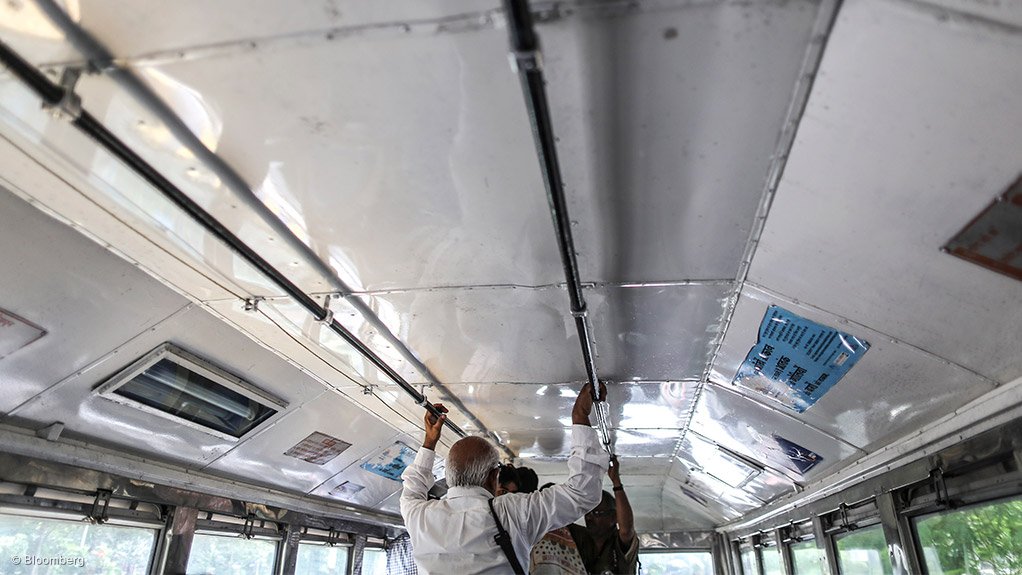While some traction had been gained in rolling out effective public transport infrastructure in South Africa, the uptake and use of public transport services had lost significant ground over the past decade.
Private vehicle use in South Africa’s metropolitan regions has jumped from 1.6-million private motorised trips in 2003 to 2.4-million private trips in 2013, Gauteng MEC for Roads and Transport Dr Ismail Vadi said on Tuesday.
He was speaking on behalf of Transport Minister Dipuo Peters at the third African Association of Public Transport congress, in Boksburg, on Tuesday.
“Despite our best efforts [and billions of rands of investments], we are losing the struggle against private cars,” he said, adding that while ridership on the country’s expanding public transport systems was rising, the market share of private motorised vehicle use was growing at a higher pace.
A survey released earlier this year had found that, in South Africa, the percentage of households that owned cars increased to 32.6% in 2013, compared with 22.9 % in 2003, leading to increased traffic congestion on South African roads.
The preference of private motorised vehicle use was a recipe for disaster worldwide, said African Association of Public Transport president Jack van der Merwe.
With 60% of the world’s population expected to be urbanised by 2025, there would be 6.2-billion private motorised trips every day worldwide and, if left unchecked, it would lead to serious challenges over the next ten years.
The expected rise in private transport would result in excessive vehicle gridlocks, bringing the world’s major cities and economic growth, to a standstill, as well as lead to a 25% rise greenhouse-gas emissions from vehicles alone.
Further, a rapid rise in vehicle accidents was predicted, with half-a-million road fatalities a year expected by 2025.
“If the world fails to change its mobility habits, the future of our planet looks bleak,” added International Association of Public Transport secretary general Alain Flausch, noting that the PTx2, or the “grow public transport” strategy, was developed to double the market share of public transport worldwide over the next decade.
Van der Merwe indicated that doubling the use of public transport would cut emissions, reduce road fatalities by 50% and create jobs, besides others.
Further, public transport would not only connect those that are unconnected to the major cities, but would also help alleviate the challenges of poverty and unemployment while opening opportunities to learn and develop skills as the country, and the rest of Africa, built effective transport systems.
South Africa has had some successes, including that of the bus rapid transport (BRT) systems currently being rolled out nationwide; however, household spending on public transport remained high, despite the government’s R5-billion-a-year bus and passenger rail services subsidies.
The Department of Transport previously indicated a doubling of public transport spend by households, from 4% of household income in 1995/6 to 10.6% by 2005/6.
About 30% of South African households spent more than 10% of their income on public transport.
“Today the cost of public transport and the distances involved prevent the poor from taking full advantage of opportunities offered by cities and such exclusion contributes to high unemployment rates,” the department noted.
The percentage of households who walk more than 15 minutes to access public transport systems increased from 10.9% in 2003 to 14.4% in 2013.
Walking times to taxis were beyond 15 minutes for 18% of urban households and more than 30 minutes for rural households, while walking times to access train services was 15 minutes for 87% of urban households and in excess of 30 minutes for 43% of rural households.
The average travel time to work on public transport was 59 minutes.
Peters had previously stated that government and stakeholders needed to examine the impact of the long hours of travel on productivity and the growth of the economy.
“This strengthens the case for safer and more reliable public transport systems,” she said.
South Africa’s ambitions of rolling out effective public transport systems have gained a foothold as nearly 1 000 BRT buses currently operated across more than 100 stations and 120 km of dedicated bus lanes, with about 75 000 commuters making use of the services in Johannesburg alone.
Further, by 2015, 2 000 former taxi drivers would have been successfully integrated into the BRT transport system, with another 3 000 taxi drivers incorporated over the next few years.
The recapitalisation programme operated alongside the BRT roll-out had also gained momentum, with 59 386 unroadworthy taxis already scrapped and a “scrapping allowance” totalling R3.3-billion dispersed in an effort to renew the country’s taxi fleet and destroy all unsafe vehicles.
EMAIL THIS ARTICLE SAVE THIS ARTICLE
To subscribe email subscriptions@creamermedia.co.za or click here
To advertise email advertising@creamermedia.co.za or click here











